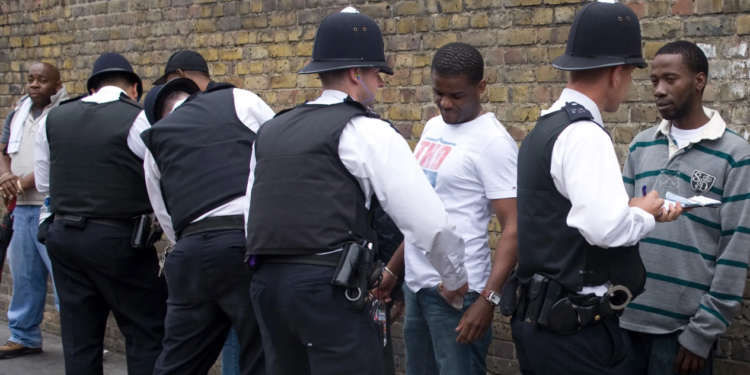Dec 2, 2024 Story by: Editor
The Independent Office for Police Conduct (IOPC), the police watchdog for England and Wales, has called for stronger measures to address the “adultification” of Black children.
Describing adultification as a racial bias, the IOPC explained it leads to Black children being perceived as more “streetwise,” “grown-up,” and less innocent or vulnerable than their peers, The Guardian reported.
While the IOPC’s new guidelines have been welcomed by advocates for police reform, many emphasize the need for a deeper transformation in how police interact with children.
In the U.S., the Center for Policing Equity has drawn parallels to cases of adultification bias, such as the infamous 1993 sentencing of 14-year-old Keith Belcher to 60 years in prison. His case was shaped by the now-discredited “superpredator theory.” Highlighting the broader implications, the Center stated, “When Black children are held to adult standards, the harm goes far beyond their own lives and that of their families, the trauma affecting whole communities, not least because those responsible are so infrequently held accountable.”
The statement also recalled the 1955 murder of 14-year-old Emmett Till, noting that his family still awaits justice: “The family of 14-year-old Emmett Till, tortured and murdered by a group of white men, is still waiting for someone to answer for his lynching.”
IOPC Director General Rachel Watson acknowledged progress but stressed there is more to be done. “We recognize the commitment across policing to improve the way it handles race discrimination and have seen good progress in some areas including complaint handling – but a lot more needs to be done,” she said. Watson added, “Too often Black communities feel overpoliced as suspects and underprotected. We want to support the police to improve how they deal with race discrimination, to ensure that everyone can have trust and confidence in policing.”
Jahnine Davis, director of Listen Up and an expert on adultification, praised the spotlight on the issue but called for broader change. “My organization has delivered adultification training to forces nationwide. Attitudes and beliefs can and do change,” Davis explained. “However, lasting change requires a fundamental shift towards prioritizing the welfare of children in all interactions. A child-first approach is needed, especially for Black children, who are more likely to experience the harsh consequences of this bias. It is as much a children’s rights issue, as it is a safeguarding one.”
Black Lives Matter UK also weighed in, pointing to the 2020 case of Child Q—a 14-year-old strip-searched by London police, which ignited public outrage. A spokesperson for the organization called the IOPC’s updated guidelines an inadequate response. “Training on ‘adultification bias’ is a paltry response to the seriousness of this case. The strip-search of children is a form of sexual assault, and this was a missed opportunity to ban the practice for good,” they said.
The organization also warned that the new measures might fall short of preventing future misconduct. “Four years on, Child Q is still haunted by her experience with the police. The IOPC’s new package will not prevent future traumatization of children through strip-search. Rather, half-measures like this still leave space for police to make so-called mistakes, which can traumatize children for life.” Source: Black Enterprises

















